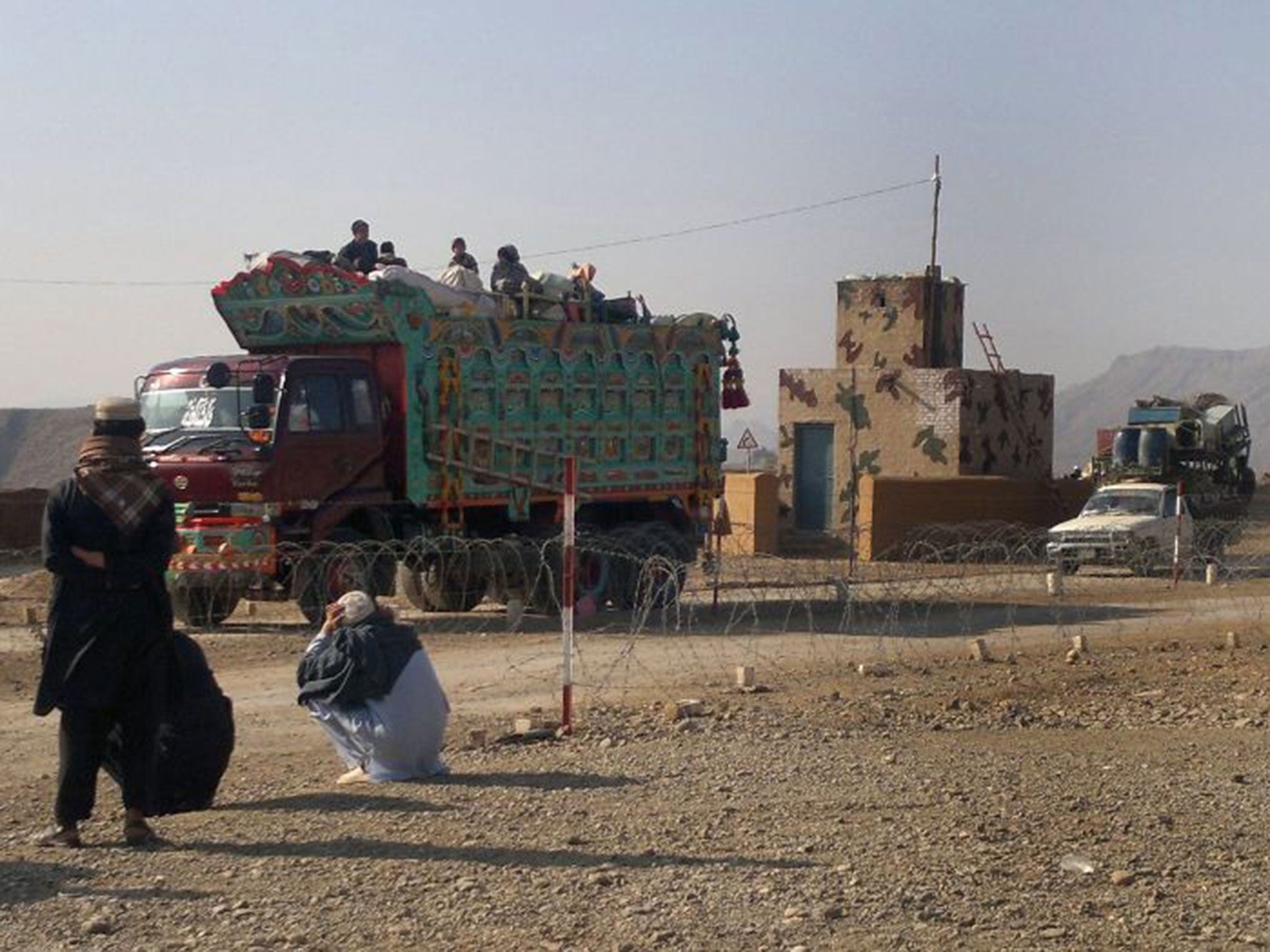Pakistani air strikes kill up to 30 'militants' in North Waziristan
Assault reportedly triggers new wave of refugees from the region

Your support helps us to tell the story
From reproductive rights to climate change to Big Tech, The Independent is on the ground when the story is developing. Whether it's investigating the financials of Elon Musk's pro-Trump PAC or producing our latest documentary, 'The A Word', which shines a light on the American women fighting for reproductive rights, we know how important it is to parse out the facts from the messaging.
At such a critical moment in US history, we need reporters on the ground. Your donation allows us to keep sending journalists to speak to both sides of the story.
The Independent is trusted by Americans across the entire political spectrum. And unlike many other quality news outlets, we choose not to lock Americans out of our reporting and analysis with paywalls. We believe quality journalism should be available to everyone, paid for by those who can afford it.
Your support makes all the difference.Pakistani jets and helicopter gunships have attacked new targets in the country’s north west, killing anywhere up to 30 suspected militants.
Reports said that in the latest in a series of assaults on targets in the North Waziristan tribal area, planes and helicopters of the Pakistan Air Force pounded targets early on Tuesday morning. The reports said the assault triggered another wave of refugees from the area.
In recent days, a number of people have been pouring out of North Waziristan, located on the border with Afghanistan, amid fears that the military is poised to launch an all-out assault. This follows a series of limited operations in the area as peace talks between the Taliban and the government of Prime Minister Nawaz Sharif continue to falter.
“The militants had captured a stretch between South Waziristan and North Waziristan and had established training centres where they were also preparing suicide bombers,” one military official told the Reuters news agency.
The latest strikes took place largely in the remote Shawal valley and Dattakhel areas of North Waziristan, said to be sites of militant training facilities and compounds. Confirming claims about who was killed and whether or not civilians were hurt is always difficult as journalists and independent observers are restricted from operating freely in the area.
Fears of a major operation heightened this month after talks broke down after the Taliban told the government there was no chance of peace unless Islamabad changed its political and legal system and officially embraced Islamic law.
Mr Sharif was elected last summer following an election campaign during which he said he supported talking to the Taliban as part of a broader regional peace effort. Both the Taliban and the government have appointed a team of interlocutors to represent them and a first meeting has been held.
But the talks have struggled to gain traction after several Taliban operations targeting security forces and following an announcement by militants in the Mohmand region that 23 soldiers had been executed.
Reports said Mr Sharif is due to meet with members of his cabinet today to discuss operations in North Waziristan. The Pakistan military has been largely reluctant to target the area in the past because it is home to militants who have mainly attacked targets in Afghanistan and who have long been considered useful proxies.
On Monday, Pakistan’s interior minister, Chaudhry Nisar Ali Khan, earned himself considerable opprobrium when he said he wanted the Taliban to come and play cricket. He told reporters he had been told the militants had an interest in the game. The Taliban rejected the minister’s offer, which was widely criticised and mocked.
Join our commenting forum
Join thought-provoking conversations, follow other Independent readers and see their replies
Comments